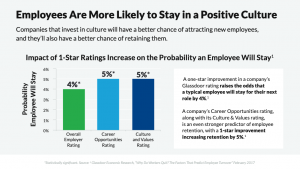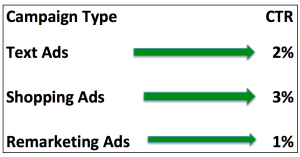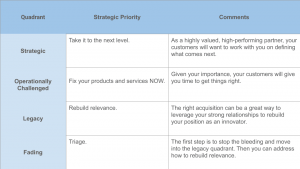For content marketers, SEO can be a hassle. Are they the same? Is SEO at odd with content marketing? Can you forcibly make them work together?
It is easy to get lost in how they work together. In certain blog posts, they sometimes even seem at odds with each other and no one really ever drew the line between the two.
The simple answer is that SEO and content marketing do go hands-in-hands together. They compel each other in the sense that SEO is all about content marketing and vis-versa.
But in reality, the answer is much more complex. Even though they overlap, the main problem between SEO and content marketing is that they are not integrated.
To understand the problem, let us break them down separately.
So How Does Search Engine Optimization Work?
Search Engine Optimization (SEO) is a collection of techniques that ensures that any web content is visible to a specific audience a marketer wants to target.
Simply put, SEO aims to get the right pair of eyes in front of the right content. This is done through regular adjustments of targeted optimization and technical tunes-ups.
An SEO expert would then uses those techniques to help drive traffic through organic sources, such as search engine.
Hence, Search Engine Optimization.
So without content, such as web pages, blogs, product descriptions, images, or videos, SEO wouldn’t work.
Why?
Because it needs content to match search engine research with specific keywords.
So What Is Content Marketing, Then?
Well, the name is self-explanatory: marketing using content. What you’re reading right now is content marketing.
It is the basis of any digital marketing campaign. For instance, let’s say I’m writing this specific blog post about intermittent fasting for company A.
Company A is a company that specializes in intermittent fasting programs. It shares it on its social media platforms, it gains traction, generates traffic, leads, and maybe even sales.
But the real magic of content marketing happens behind the scene. SEO is what gives content marketing its potential to generate traffic with organic sources. So, in a way, content with good SEO can generate traffic without paying for ads.
But do not be mistaken. Good SEO won’t make up for bad content, thought. It’s not a magical potion that can transform garbage into gold. As a content marketer, you still have the responsibility to create good content.
So How Do They Work Together?
Firstly, it’s important to understand SEO and content marketing are not at odds. The main problem between the two is that they’re not integrated.
What that means is that you need to be mindful of how a search engine works. It figures out what your content is about, then proceeds to catalog it accordingly.
How do you do that, then?
You break down your content into individual topics. The more your content narrowed down into specific areas, the better.
Why?
Because they overlap.
Even though there are some differences between the two, the most important being.
SEO is narrower, focusing on the technical aspect of the content.
Content is broader, focusing on a holistic approach.
They overlap in this way.
SEO is integrated by applying its technical features to channel it more broadly.
Oppositely, the only way to assure the success of an organic content marketing campaign is by using SEO techniques in its implementation.
So How Can You Make Them Come Together?
A good way to look at the problem is can go like this – SEO makes a specific demand. Content marketing fulfills that specific demand.
Think of it as a conversation between two people.

The SEO sets the requirements that content marketing fulfills.
Let’s look specifically at how SEO and content marketing complement each other.
SEO Demands Content.
It’d be pretty hard to make the SEO works without any written content. You need words, articles, blogs, landing pages, keywords, and verbiage.
And as cliché as it sounds, it is the fundamental truth: content is everything.
It’s indubitable and a truism of the SEO industry. So what is content marketing all about then? Well, content. It’s, paradoxically the practical application of SEO.
And it’s due to keywords.
SEO demands keywords. Content marketing means using keywords.
This is the most fundamental aspect of SEO – searching them, utilizing them, and tracking their ranking in the SERP.
So how does one can cram keywords? How can you funnel all your research into practical application?
It’s content marketing. The only way you can use keywords correctly is if you employ them strategically throughout your content. Content marketing is, after all, top-notch content designed and made by and for humans.
SEO Demands Linkbacks And Content Marketing Offers Linkback.
If SEOs could dream, they would dream about linkbacks – a fat, juicy DA 98 linking to your site. Or an influential .edu tossing a link to your blog article.
But this dream can only true if you’re releasing phenomenal content through content marketing.
You can also build links throughout a link-building agency. Some are great, some, not so great.
Even then, the best way to build links is by publishing content – good content, that is, so the people can link back to it. This is the real key to continual SEO success.
If you want this crucial component of SEO, you’ll need to have this indispensable element of content marketing. The dangling SEO carrot is to have content worth linking to.
So How Do You Balance SEO Technical Optimization With Content Marketing UX?
Designing your content with a search engine in mind can be tricky. Nonetheless, this doesn’t mean you should stuff your content with keywords to the brim.
No one wants to read the same word in each sentence. Your content will look like a bloated mess of keywords rather than logical continuity.
Instead, you have to be mindful of how a search engine works. From the content marketing standpoint, this means breaking your content into an individual topic, narrowed down to a specific point.
Why? Because SEO is more than just linkbacks, blogs, or keywords. It’s about optimizing robots.txt, improving metadata, utilizing the right tags, and constructing the correct sitemap. Technical pieces of stuff like that.
Whether or not this sounds far-fetched, this is tangentially linked to content marketing.
The technical optimization of SEO is actually put specifically for the user – whether if it’s the user searching, selecting, or reading your content.
It’s correct to think of these technical optimizations as enhancements from a user experience (UX) perspective. They are present to serve the user and to promote your content.
The link between SEO and content is inseparable. For instance.
- Why would you want a good site map? So that people can find and access your content more easily.
- How can optimized robots.txt benefit you? So that search engines can better writhe your site, and readers access your content.
- Why would you want the right tags at the right place? So that your content gets cataloged and indexed accordingly, more accurate search results, and, ultimately, more readers.
Consistent And Continual Output.
Even though this is in part a content marketing strategy, SEO is nonetheless present in it. Why? Because Google likes fresh content and has for quite some time now.
If you’re familiar with SEO, you’ll notice that fresh content gets quickly indexed, and catalogs higher in the SERPs than older and lower-value content. If new content appears on a site with high historic authority in a subject, you can bet that it’s going to have a SERP boost.
Then, SEO means the consistent output of quality content. Consistent output means that you are doing content marketing, and you have to do it right. There aren’t any two ways around it.
Conclusion
I could continue rambling about the applications of SEO and content marketing, but I hope the point is clear: SEO is all about content marketing and content marketing is all about SEO.
To conclude in style, there are two important takeaway points I want to make.
- You are not an SEO without being a content marketer, and you are not a content marketer without being an SEO.
This is not a moral or prescriptive judgment of any kind. If you call yourself exclusively an “SEO” or a “content marketer”, that is totally fine.
The point is that content marketing needs SEO, and SEO needs content marketing. These are no longer separate departments with disconnected efforts. An SEO needs to be aware of content marketing, and vis-versa.
- An SEO campaign will fail unless it integrates content marketing and a content marketing campaign will fail unless it integrates SEO.
Logically, content marketing can only be successful if it has SEO components integrated into it. After all, if not, how can readers reach your content if it’s not correctly integrated.
Alone, they will fail. United, they will stand.
Digital & Social Articles on Business 2 Community
(111)
Report Post







